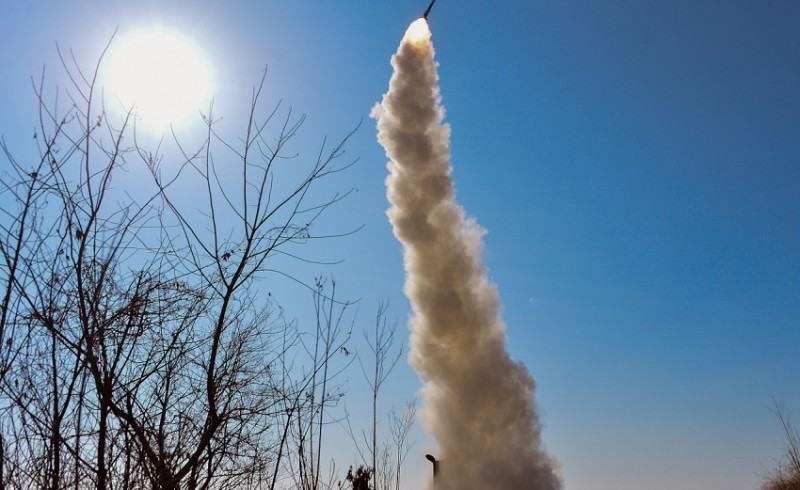
North Korea launched several cruise missiles on Wednesday, according to Seoul's military. This is part of a series of weapons tests seen this year, accompanied by increasingly aggressive statements from leader Kim Jong Un.
In recent months, Kim has labeled South Korea as his country's "main adversary," dismantled agencies focused on reunification efforts, and even threatened war over the smallest territorial disputes.
Pyongyang has escalated its weapons testing, including cruise missiles, an "underwater nuclear weapon system," and a solid-fueled hypersonic ballistic missile.
The Joint Chiefs of Staff stated, "Our military detected several unidentified cruise missiles over the waters northeast of Wonsan around 09:00 today (1200 GMT), and South Korea-U.S. intelligence authorities are conducting a thorough analysis."
They also mentioned that the military is on high alert, closely monitoring North Korea for any further signs of activity.
Earlier this week, North Korea announced the testing of a new control system for a multiple rocket launcher, claiming it would play an "expanded" role on the battlefield.
Speculation has arisen among experts that North Korea might be testing these cruise missiles before potentially transferring them to Moscow for use in Ukraine.
North Korea and Russia have strengthened their ties in recent months, with Kim Jong Un making a rare visit to Russia to meet President Vladimir Putin in September.
Seoul and Washington have accused North Korea of providing Russia with weapons in exchange for technical assistance for Kim's satellite program, which would violate numerous U.N. sanctions on both countries.
Unlike ballistic missiles, the testing of cruise missiles is not prohibited under current U.N. sanctions on Pyongyang.
Cruise missiles are typically propelled by jets and fly at lower altitudes than more advanced ballistic missiles, making them more difficult to detect and intercept.
Ahn Chan-il, a defector-turned-researcher who heads the World Institute for North Korea Studies, suggested that North Korea may have exported large quantities of multiple rocket launchers to Russia last year. He added that there could have been quality issues with some of these weapons, and the recent surge in testing might be Kim's attempt to address these concerns.
Here's Why North Korea Ends Economic Ties with South Amid Rising Tensions
Saudi Arabia Agrees $3.2 Billion Deal for South Korean Missile Defense System